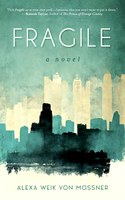Contemporary Literature Book Club
 The Contemporary Literature Book Club is a meeting group intended for the discussion of contemporary literature in the English language. Students, faculty and staff are always welcome to join us.
The Contemporary Literature Book Club is a meeting group intended for the discussion of contemporary literature in the English language. Students, faculty and staff are always welcome to join us.
The group meets once a month to discuss a work of contemporary English-language literature. For more information or to join, contact Eva von Contzen or Philomena Wolf!
[Please flip your mobile device for better display]
Program | WINTER 2025/26
Thursdays | 2 – 3 pm
 |
23 April – Florence Knapp, The Names (2025) It is 1987, and in the aftermath of a great storm, Cora sets out with her nine-year-old daughter to register the birth of her son. Her husband intends for her to follow a long-standing family tradition and call the baby after him. But when faced with the decision, Cora hesitates. Going against his wishes is a risk that will have consequences, but is it right for her child to inherit his name from generations of domineering men? The choice she makes in this moment will shape the course of their lives. |
|
|
21 May – David Szalay, Flesh (2025) Teenaged István lives with his mother in a quiet apartment complex in Hungary. Shy and new in town, he is a stranger to the social rituals practiced by his classmates and is soon isolated, drawn instead into a series of events that leave him forever a stranger to peers, his mother, and himself. In the years that follow, István is born along by the goodwill, or self-interest, of strangers, charting a rocky yet upward trajectory that lands him further from his childhood, and the defining events that abruptly ended it, than he could possibly have imagined. |
|
|
18 June – Sarah Hall, Helm (2025) 2 - 3 p.m. | HS 1227, KG 1
|
 |
16 July – Ian McEwan, What We Can Know (2025) |
Past Sessions
WINTER 2025/26
 |
 |
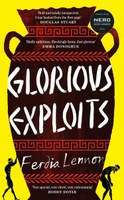 |
 |
-
16 October– Michelle de Kretser, Theory & Practice (2024)
2 - 3 p.m. | HS 1021, KG1
It’s 1986, and ‘beautiful, radical ideas’ are in the air. A young woman arrives in Melbourne to research the novels of Virginia Woolf. In bohemian St Kilda she meets artists, activists, students—and Kit. He claims to be in a ‘deconstructed’ relationship, and they become lovers. Meanwhile, her work on the Woolfmother falls into disarray.
-
20 November – Torrey Peters, Stag Dance (2025)
2 - 3 p.m. | HS 1021, KG 1Deep in the forest, a group of restless lumberjacks working an illegal logging outfit plan a winter dance that some will volunteer to attend as women; the broadest, strongest axeman finds himself caught in a rivalry with a pretty, young jack that culminates in jealousy, betrayal and an astonishing spectacle of transition. Meanwhile, in other times and places, the gender apocalypse is brought about by an unstable ex-girlfriend; an illicit boarding-school romance surfaces intrigue and cruelty; and a Las Vegas party weekend turns dark when a young crossdresser must choose between a thrilling mystery man or a veteran trans woman offering unglamorous sisterhood.
- 18 December – Ferdia Lennon, Glorious Exploits (2024)
2 - 3 p.m. | HS 1021, KG 1
Imprisoned in the quarries of Syracuse, thousands of defeated Athenians hang on by the thinnest of threads.
They're fading in the baking heat, but not everything is lost: they can still recite lines from Greek tragedy when tempted by Lampo and Gelon with goatskins of wine and scraps of food.
And so an idea is born. Because, after all, you can hate the invaders but still love their poetry.
It's audacious. It might even be dangerous. But like all the best things in life - love, friendship, art itself - it will reveal the very worst, and the very best, of what humans are capable of.
What could possibly go wrong?
- 22 January – Xiaolu Guo, Call Me Ishmaelle (2025)
2 - 3 p.m. | HS 1021, KG 1
1843. Ishmaelle is born in a small village on the stormy Kent coast where she grows up swimming with dolphins. After her parents and infant sister die, her brother, Joseph, leaves to find work as a sailor. Abandoned and desperate for a life at sea, Ishmaelle disguises herself as a cabin boy and travels to New York.
As the American Civil War breaks out in 1861, Ishmaelle boards the Nimrod, a whaling ship led by the obsessive Captain Seneca, a Black free man of heroic stature who is haunted by a tragic past. Here, she finds protectors in Polynesian harpooner, Kauri, and Taoist monk, Muzi, whose readings of the I-Ching guide their quest.
Through the bloody male violence of whaling, and the unveiling of her feminine identity, Ishmaelle realises there is a mysterious bond between herself and the mythical white whale, Moby Dick.
SUMMER 2025
 |
|
 |
 |
- 8 May– Miranda July, All Fours (2024)
A semi-famous artist announces her plan to drive cross-country, from Los Angeles to New York City. Thirty minutes after leaving her husband and child at home, she spontaneously exits the freeway, checks into a nondescript motel, and immerses herself in an entirely different journey.
-
5 June – Samantha Harvey, Orbital (2023)
A slender novel of epic power, Orbital deftly snapshots one day in the lives of six women and men traveling through space. Selected for one of the last space station missions of its kind before the program is dismantled, these astronauts and cosmonauts—from America, Russia, Italy, Britain, and Japan—have left their lives behind to travel at a speed of over seventeen thousand miles an hour as the earth reels below. We glimpse moments of their earthly lives through brief communications with family, their photos and talismans; we watch them whip up dehydrated meals, float in gravity-free sleep, and exercise in regimented routines to prevent atrophying muscles; we witness them form bonds that will stand between them and utter solitude. Most of all, we are with them as they behold and record their silent blue planet. Their experiences of sixteen sunrises and sunsets and the bright, blinking constellations of the galaxy are at once breathtakingly awesome and surprisingly intimate.
- 3 July – Sally Rooney, Intermezzo (2024)
Aside from the fact that they are brothers, Peter and Ivan Koubek seem to have little in common.
Peter is a Dublin lawyer in his thirties - successful, competent and apparently unassailable. But in the wake of their father's death, he's medicating himself to sleep and struggling to manage his relationships with two very different women - his enduring first love Sylvia, and Naomi, a college student for whom life is one long joke.
Ivan is a twenty-two-year-old competitive chess player. He has always seen himself as socially awkward, a loner, the antithesis of his glib elder brother. Now, in the early weeks of his bereavement, Ivan meets Margaret, an older woman emerging from her own turbulent past, and their lives become rapidly and intensely intertwined.
For two grieving brothers and the people they love, this is a new interlude - a period of desire, despair and possibility - a chance to find out how much one life might hold inside itself without breaking.
- 24 July – Natasha Brown, Universality (2025)
Remember - words are your weapons, they're your tools, your currency.
On a Yorkshire farm, a man is brutally bludgeoned with a solid gold bar.
A plucky young journalist sets out to uncover the truth surrounding the attack, connecting the dots between an amoral banker landlord, an iconoclastic columnist, and a radical anarchist movement. She solves the mystery, but her viral longread exposé raises more questions than it answers.
WINTER 2024/25
 |
|
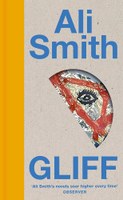 |
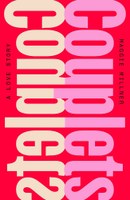 |
- 31 October – Rachel Cusk, Parade (2024)
Midway through his life, the artist G begins to paint upside down. Eventually, he paints his wife upside down. He also makes her ugly. The paintings are a great success.
In Paris, a woman is attacked by a stranger in the street. Her attacker flees, but not before turning around to contemplate her victim, like an artist stepping back from a canvas.
At the age of twenty-two, the painter G leaves home for a new life in another country, far from the disapproval of her parents. Her paintings attract the disapproval of the man she later marries.
When a mother dies, her children confront her legacy: the stories she told, the roles she assigned to them, the ways she withheld her love. Her death is a kind of freedom.
Parade is a novel that demolishes the conventions of storytelling. It surges past the limits of identity, character, and plot to tell the story of G, an artist whose life contains many lives. Rachel Cusk is a writer and visionary like no other, who turns language upside down to show us our world as it really is.
- 28 November – Percival Everett, James (2024)
When the enslaved Jim overhears that he is about to be sold to a man in New Orleans, separated from his wife and daughter forever, he decides to hide on nearby Jackson Island until he can formulate a plan. Meanwhile, Huck Finn has faked his own death to escape his violent father, recently returned to town. As all readers of American literature know, thus begins the dangerous and transcendent journey by raft down the Mississippi River toward the elusive and too-often-unreliable promise of the Free States and beyond.
- 19 December – Ali Smith, Gliff (2024)
O brave new world, that has such people in't.
Once upon a time not very far from now, two children come home to find a line of wet red paint encircling the outside of their house.
What does it mean?
It’s a truism of our time that it’ll be the next generation who’ll sort out our increasingly toxic world.
What would that actually be like?
In a state turned hostile, a world of insiders and outsiders, what things of the past can sustain them and what shape can resistance take?
And what’s a horse got to do with any of this?
- 30 January – Maggie Millner, Couplets (2023)
A dazzling love story in poems about one woman's coming-out, coming-of-age, and coming undone
A woman lives an ordinary life in Brooklyn. She has a boyfriend. They share a cat. She writes poems in the prevailing style. She also has dreams: of being seduced by a throng of older women, of kissing a friend in a dorm-room closet. But the dreams are private, not real.
One night, she meets another woman at a bar, and an escape hatch swings open in the floor of her life. She falls into a consuming affair-into queerness, polyamory, kink, power and loss, humiliation and freedom, and an enormous surge of desire that lets her leave herself behind.
SUMMER 2024
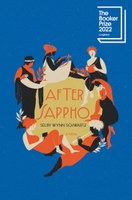 |
|
 |
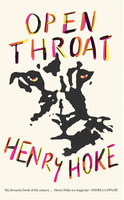 |
- 25 April – Selby Wynn Schwartz, After Sappho (2022)
What did we want? To begin with, we wanted what half the population had got by just being born.
It’s 1895. Amid laundry and bruises, Rina Pierangeli Faccio gives birth to the child of the man who raped her – the man she has been forced to marry. Unbroken, she determines to change her name and, alongside it, her life.
1902. Romaine Brooks sails for Capri. She has barely enough money for the ferry, nothing for lunch; her paintbrushes are bald and clotted. But she is sure she can sell a painting – and is fervent in her belief that the island is detached from all fates she has previously suffered.
In 1923, Virginia Woolf writes: I want to make life fuller – and fuller.
Told in a series of cascading vignettes, featuring a multitude of voices, After Sappho reimagines the lives of a brilliant group of feminists, sapphists, artists and writers in the late nineteenth and early twentieth century as they battle for liberation, justice and control over their own lives. - 16 May – Warsan Shire, Bless the Daugther Raised by a Voice in Her Head (2022)
Mama, I made it
out of your home,
alive, raised by the
voices in my head.
With her first full-length poetry collection, Warsan Shire introduces us to a young girl, who, in the absence of a nurturing guide, makes her own stumbling way towards womanhood. Drawing from her own life and the lives of loved ones, as well as pop culture and news headlines, Shire finds vivid, unique details in the experiences of refugees and immigrants, mothers and daughters, Black women, and teenage girls. In Shire's hands, lives spring into fullness. This is noisy life: full of music and weeping and surahs and sirens and birds. This is fragrant life: full of blood and perfume and shisha smoke and jasmine and incense. This is polychrome life: full of henna and moonlight and lipstick and turmeric and kohl.
- 13 June – Rebecca F. Kuang, Yellowface (2023)
Athena Liu is a literary darling and June Hayward is literally nobody.
When Athena dies in a freak accident, June steals her unpublished manuscript and publishes it as her own under the ambiguous name Juniper Song. But as evidence threatens June’s stolen success, she will discover exactly how far she will go to keep what she thinks she deserves. What happens next is entirely everyone else’s fault. - 11 July – Henry Hoke, Open Throat (2023)
A queer and dangerously hungry mountain lion lives in the drought-devastated land under the Hollywood sign. Lonely and fascinated by humanity’s foibles, the lion spends their days protecting the welfare of a nearby homeless encampment, observing obnoxious hikers complain about their trauma, and, in quiet moments, grappling with the complexities of their gender identity, memories of a vicious father, and the indignities of sentience. “I have so much language in my brain,” our lion says, “and nowhere to put it.”
When a man-made fire engulfs the encampment, the lion is forced from the hills down into the city the hikers call “ellay.” As the lion confronts a carousel of temptations and threats, they take us on a tour that spans the cruel inequalities of Los Angeles and the toll of climate grief, while scrambling to avoid earthquakes, floods, and the noise of their own conflicted psyche. But even when salvation finally seems within reach, they are forced to face down the ultimate question: Do they want to eat a person, or become one?
WINTER 2023/24
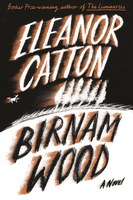 |
|
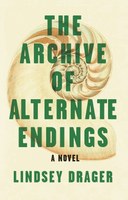 |
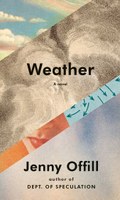 |
 |
-
Eleanor Catton, Birnam Wood (2023) | 10.2023
Five years ago, Mira Bunting founded a guerrilla gardening group: Birnam Wood. An undeclared, unregulated, sometimes-criminal, sometimes-philanthropic gathering of friends, this activist collective plants crops wherever no one will notice: on the sides of roads, in forgotten parks, and neglected backyards. For years, the group has struggled to break even. Then Mira stumbles on an answer, a way to finally set the group up for the long term: a landslide has closed the Korowai Pass, cutting off the town of Thorndike. Natural disaster has created an opportunity, a sizable farm seemingly abandoned.
But Mira is not the only one interested in Thorndike. Robert Lemoine, the enigmatic American billionaire, has snatched it up to build his end-times bunker--or so he tells Mira when he catches her on the property. Intrigued by Mira, Birnam Wood, and their entrepreneurial spirit, he suggests they work this land. But can they trust him? And, as their ideals and ideologies are tested, can they trust each other? -
SPECIAL EVENT: Discussion of Fragile (2023) with the author Alexa Weik von Mossner | 11.2023
New York in 2057—a metropolis divided. Sheltered by seawalls, Manhattan is green, clean, and thriving, but the eastern boroughs have been given up to the rising Atlantic. The planet has been ravaged by climate change, causing a global scarcity of pharmaceuticals, food, and other essentials for survival.
Shavir Tayard, barista and urban community farmer by day, rescuer of animals by night, is on a dog liberation raid in the coastal evacuation zone of Brooklyn when she sustains an injury that changes her relationship with the cute regular at her coffee shop—and her life.
Jake Alvaro is a troubled Homeland Security agent tasked with securing critical medical drugs for New York in a world running out of everything. His view of whose lives must be saved and who can be sacrificed is challenged when Shavir takes him across the East River to the people he was told to ignore. Soon, he begins to question the fragile truths he built his life upon. -
Lindsey Drager, The Archive of Alternate Endings (2019) | 12.2023
In 1456, Johannes Gutenberg’s sister uses the tale as a surrogate for sharing a family secret only her brother believes. In 1835, The Brothers Jacob and Wilhelm Grimm revise the tale to bury a truth about Jacob even he can’t come to face. In 1986, a folklore scholar and her brother come to find the record is wrong about the figurative witch in the woods, while in 2211, twin space probes aiming to find earth's sister planet disseminate the narrative in binary code. Breadcrumbing back in time from 2365 to 1378, siblings reimagine, reinvent, and recycle the narrative of Hansel and Gretel to articulate personal, regional, and ultimately cosmic experiences of tragedy.
-
Jenny Offill, Weather (2020) | 01.2024
Lizzie Benson slid into her job as a librarian without a traditional degree. But this gives her a vantage point from which to practice her other calling: she is a fake shrink. For years, she has tended to her God-haunted mother and her recovering addict brother. They have both stabilized for the moment, but Lizzie has little chance to spend her new free time with husband and son before her old mentor, Sylvia Liller, makes a proposal. She's become famous for her prescient podcast, Hell and High Water, and wants to hire Lizzie to answer the mail she receives: from left-wingers worried about climate change and right wingers worried about the decline of western civilization.
As Lizzie dives into this polarized world, she begins to wonder what it means to keep tending your own garden once you've seen the flames beyond its walls. When her brother becomes a father and Sylvia a recluse, Lizzie is forced to address the limits of her own experience—but still she tries to save everyone, using everything she's learned about empathy and despair, conscience and collusion, from her years of wandering the library stacks... And all the while the voices of the city keep floating in—funny, disturbing, and increasingly mad. -
Jen Beagin, Big Swiss (2023) | 02.2024
Greta lives with her friend Sabine in an ancient Dutch farmhouse in Hudson, New York. She spends her days transcribing therapy sessions for a sex coach who calls himself Om. She becomes infatuated with his newest client, a repressed married woman she affectionately refers to as Big Swiss, since she’s tall, stoic, and originally from Switzerland. They both have dark histories, but Big Swiss chooses to remain unattached to her suffering while Greta continues to be tortured by her past.
One day, Greta recognizes Big Swiss’s voice at the dog park. In a panic, she introduces herself with a fake name and they quickly become enmeshed. Although Big Swiss is unaware of Greta’s true identity, Greta has never been more herself with anyone.
SUMMER 2023
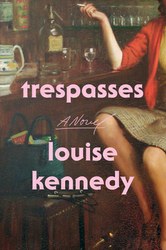 |
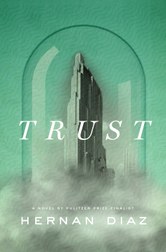 |
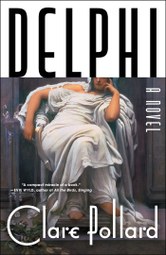 |
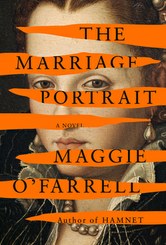 |
-
Louise Kennedy, Trespasses (2022) | 04.2023
Set in Northern Ireland during the Troubles, a shattering novel about a young woman caught between allegiance to community and a dangerous passion.
Amid daily reports of violence, Cushla lives a quiet life with her mother in a small town near Belfast. By day she teaches at a parochial school; at night she fills in at her family's pub. There she meets Michael Agnew, a barrister who's made a name for himself defending IRA members. Against her better judgment - Michael is not only Protestant but older, and married - Cushla lets herself get drawn in by him and his sophisticated world, and an affair ignites. Then the father of a student is savagely beaten, setting in motion a chain reaction that will threaten everything, and everyone, Cushla most wants to protect.
As tender as it is unflinching, Trespasses is a heart-pounding, heart-rending drama of thwarted love and irreconcilable loyalties, in a place what you come from seems to count more than what you do, or whom you cherish. -
Hernan Diaz, Trust (2022) | 05.2023
Even through the roar and effervescence of the 1920s, everyone in New York has heard of Benjamin and Helen Rask. He is a legendary Wall Street tycoon; she is the brilliant daughter of eccentric aristocrats. Together, they have risen to the very top of a world of seemingly endless wealth. But the secrets around their affluence and grandeur incites gossip. Rumors about Benjamin's financial maneuvers and Helen's reclusiveness start to spread--all as a decade of excess and speculation draws to an end. At what cost have they acquired their immense fortune?
This is the mystery at the center of a successful 1938 novel entitled Bonds, which all of New York seems to have read. But it isn't the only version. -
Clare Pollard, Delphi (2022) | 06.2023
Covid-19 has arrived in London, and the entire world quickly succumbs to the surreal, chaotic mundanity of screens, isolation, and the disasters big and small that have plagued recent history. As our unnamed narrator—a classics professor immersed in her studies of ancient prophecies—navigates the tightening grip of lockdown, a marriage in crisis, and a ten-year-old son who seems increasingly unreachable, she becomes obsessed with predicting the future. Shifting her focus from chiromancy (prophecy by palm reading) to zoomancy (prophecy by animal behavior) to oenomancy (prophecy by wine), she fails to notice the future creeping into the heart of her very own home, and when she finally does, the threat has already breached the gates.
Brainy and ominous, imaginative and funny, Delphi is a snapshot and a time capsule—it vividly captures our current moment and places our reality in the context of myth. Clare Pollard has delivered one of our first great pandemic novels, a mesmerizing and richly layered story about how we keep on living in a world that is ever-more uncertain and absurd. -
Maggie O'Farell, The Marriage Portrait (2022) | 07.2023
Florence, the 1550s. Lucrezia, third daughter of the grand duke, is comfortable with her obscure place in the palazzo: free to wonder at its treasures, observe its clandestine workings, and devote herself to her own artistic pursuits. But when her older sister dies on the eve of her wedding to the ruler of Ferrara, Modena and Reggio, Lucrezia is thrust unwittingly into the limelight: the duke is quick to request her hand in marriage, and her father just as quick to accept on her behalf.
Having barely left girlhood behind, Lucrezia must now enter an unfamiliar court whose customs are opaque and where her arrival is not universally welcomed. Perhaps most mystifying of all is her new husband himself, Alfonso. Is he the playful sophisticate he appeared to be before their wedding, the aesthete happiest in the company of artists and musicians, or the ruthless politician before whom even his sisters seem to tremble?
As Lucrezia sits in constricting finery for a painting intended to preserve her image for centuries to come, one thing becomes worryingly clear. In the court’s eyes, she has one duty: to provide the heir who will shore up the future of the Ferranese dynasty. Until then, her future hangs entirely in the balance.
WINTER 2022/23
 |
 |
 |
 |
-
Ottessa Moshfegh, Lapvona (2022) | 10.2022
Little Marek, the abused and delusional son of the village shepherd, never knew his mother; his father told him she died in childbirth. One of life’s few consolations for Marek is his enduring bond with the blind village midwife, Ina, who suckled him as a baby, as she did so many of the village’s children. Ina’s gifts extend beyond childcare: she possesses a unique ability to communicate with the natural world. Her gift often brings her the transmission of sacred knowledge on levels far beyond those available to other villagers, however religious they might be. For some people, Ina’s home in the woods outside of the village is a place to fear and to avoid, a godless place.
Among their number is Father Barnabas, the town priest and lackey for the depraved lord and governor, Villiam, whose hilltop manor contains a secret embarrassment of riches. The people’s desperate need to believe that there are powers that be who have their best interests at heart is put to a cruel test by Villiam and the priest, especially in this year of record drought and famine. But when fate brings Marek into violent proximity to the lord’s family, new and occult forces upset the old order. By year’s end, the veil between blindness and sight, life and death, the natural world and the spirit world, civility and savagery, will prove to be very thin indeed. -
Rachel Yoder, Nightbitch (2021) | 11.2022
One day, the mother was a mother but then, one night, she was quite suddenly something else...
At home full-time with her two-year-old son, an artist finds she is struggling. She is lonely and exhausted. She had imagined - what was it she had imagined? Her husband, always travelling for his work, calls her from faraway hotel rooms. One more toddler bedtime, and she fears she might lose her mind.
Instead, quite suddenly, she starts gaining things, surprising things that happen one night when her child will not sleep. Sharper canines. Strange new patches of hair. New appetites, new instincts. And from deep within herself, a new voice...
With its clear eyes on contemporary womanhood and sharp take on structures of power, Nightbitch is an outrageously original, joyfully subversive read that will make you want to howl in laughter and recognition. Addictive enough to be devoured in one sitting, this is an unforgettable novel from a blazing new talent. -
Zadie Smith, The Wife of Willesden (2021) | 12.2022
'Married five times. Mother. Lover. Aunt. Friend.
She plays many roles round here. And never
Scared to tell the whole of her truth, whether
Or not anyone wants to hear it. Wife
Of Willesden: pissed enough to tell her life
Story to whoever has ears and eyes . . .'
Zadie Smith's first time writing for the stage, The Wife of Willesden is a riotous twenty-first century translation of Geoffrey Chaucer's classic The Wife of Bath's Prologue, brought to glorious life on the Kilburn High Road. -
Kamila Shamsie, Best of Friends (2022) | 01.2023
Zahra and Maryam have been best friends since childhood in Karachi, even though--or maybe because--they are unlike in nearly every way. Yet they never speak of the differences in their backgrounds or their values, not even after the fateful night when a moment of adolescent impulse upends their plans for the future.
Three decades later, Zahra and Maryam have grown into powerful women who have each cut a distinctive path through London. But when two troubling figures from their past resurface, they must finally confront their bedrock differences--and find out whether their friendship can survive.
Thought-provoking, compassionate, and full of unexpected turns, Best of Friends offers a riveting take on an age-old question: Does principle or loyalty make for the better friend?
SUMMER 2022
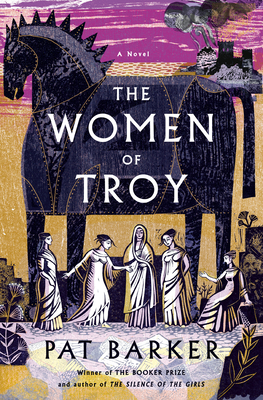 |
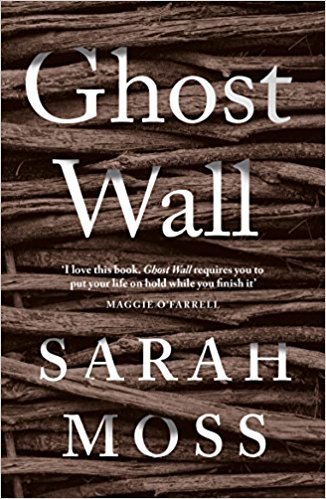 |
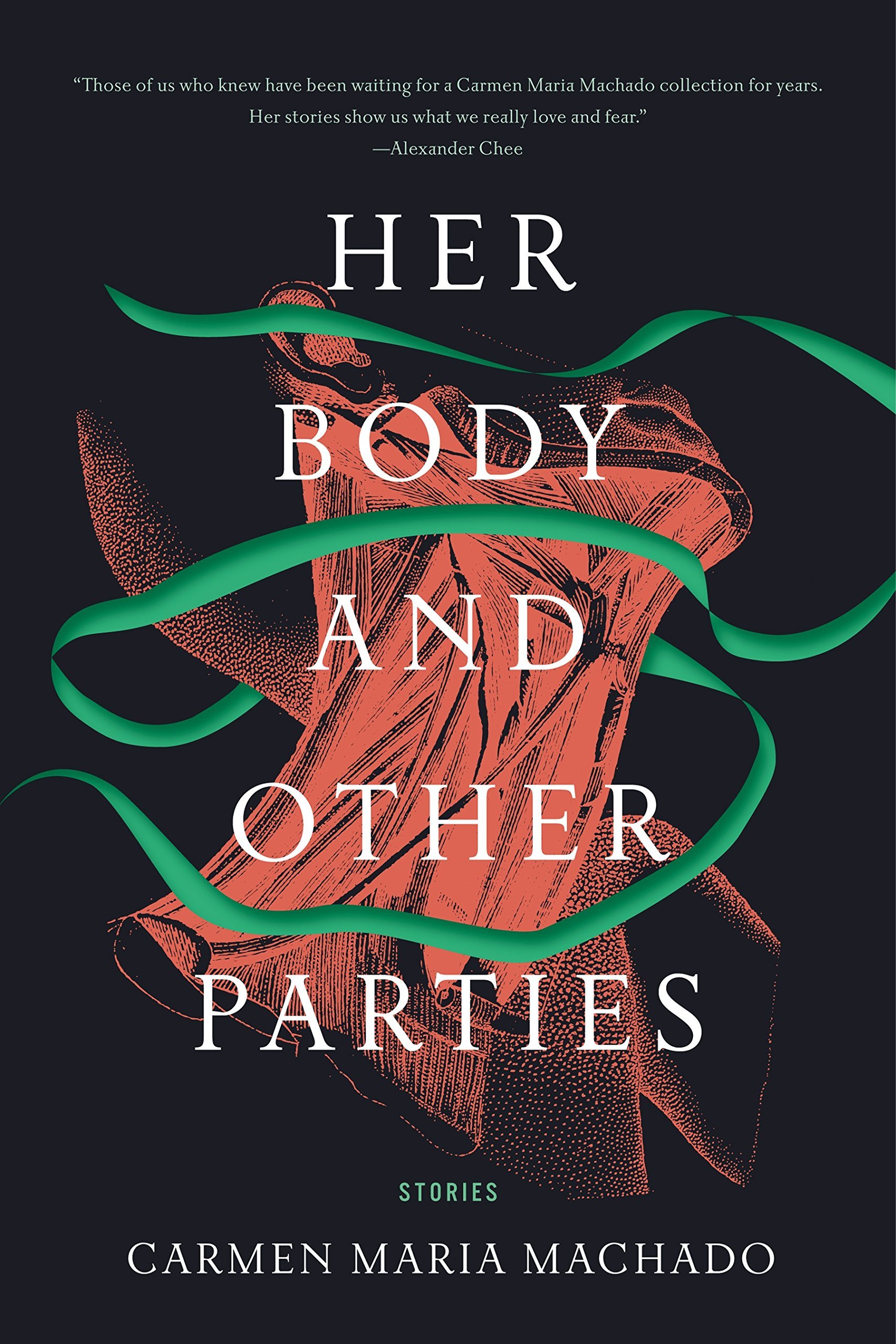 |
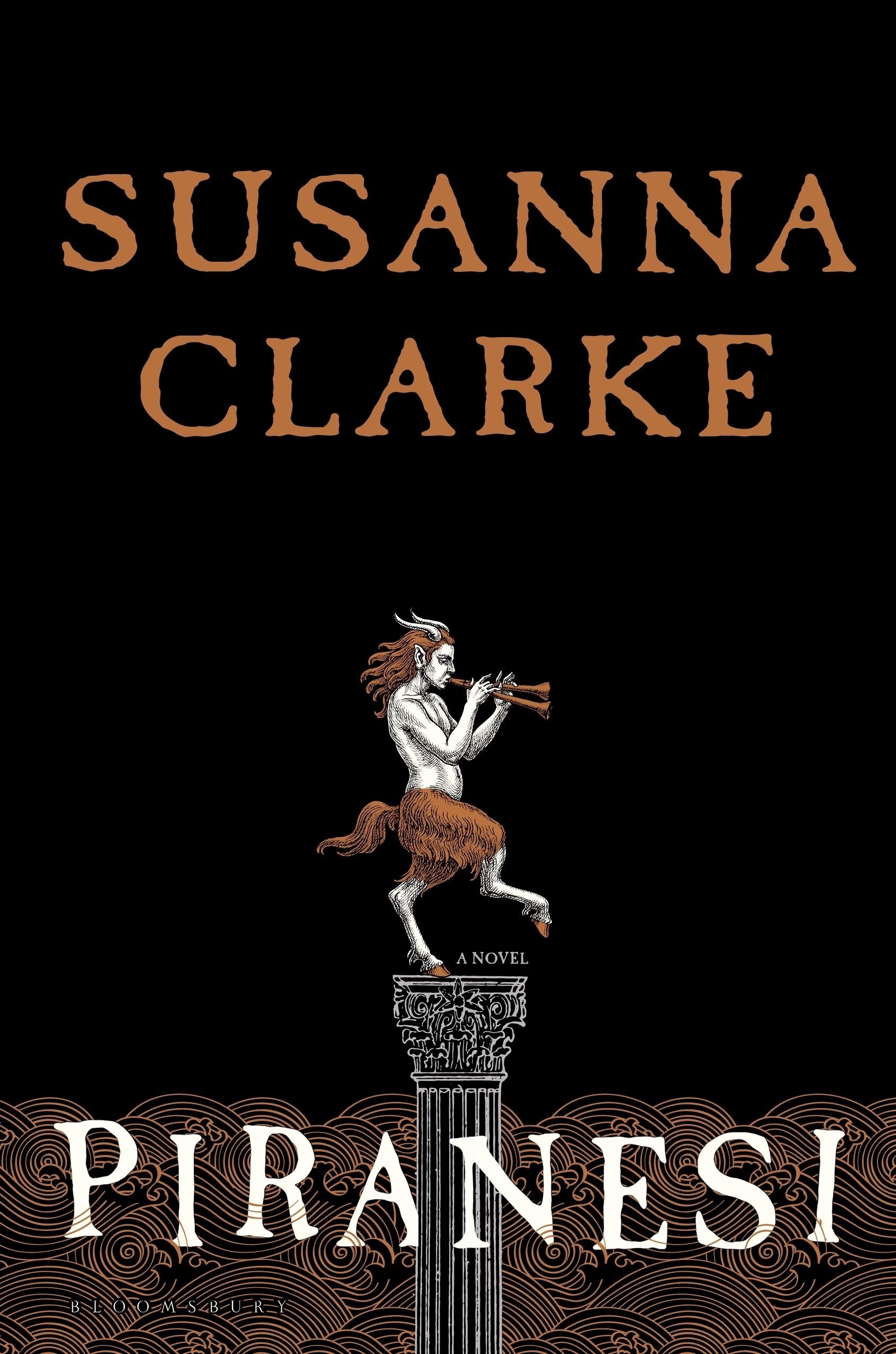 |
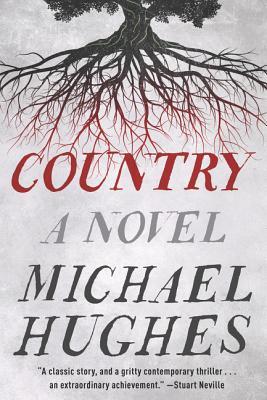 |
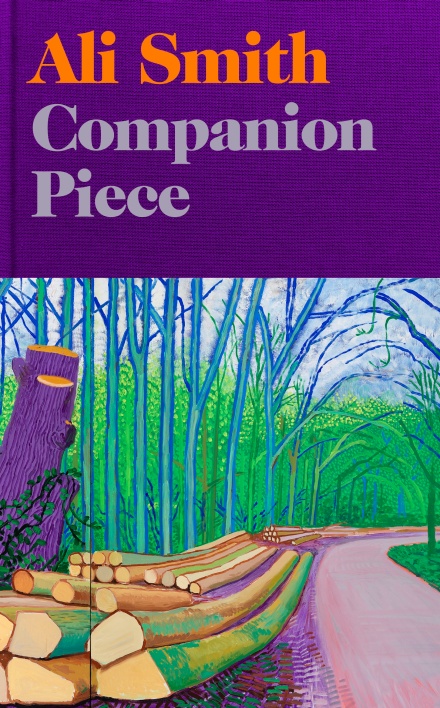 |
- Pat Barker, The Women of Troy (2021) | 5.2022
Troy has fallen and the victorious Greeks are eager to return home with the spoils of an endless war—including the women of Troy themselves. They await a fair wind for the Aegean.
It does not come, because the gods are offended. The body of King Priam lies unburied and desecrated, and so the victors remain in suspension, camped in the shadows of the city they destroyed as the coalition that held them together begins to unravel. Old feuds resurface and new suspicions and rivalries begin to fester.
Largely unnoticed by her captors, the one time Trojan queen Briseis, formerly Achilles's slave, now belonging to his companion Alcimus, quietly takes in these developments. She forges alliances when she can, with Priam's aged wife the defiant Hecuba and with the disgraced soothsayer Calchas, all the while shrewdly seeking her path to revenge.
- Sarah Moss, Ghost Wall (2018) | 5.2022
In the north of England, far from the intrusions of cities but not far from civilization, Silvie and her family are living as if they are ancient Britons, surviving by the tools and knowledge of the Iron Age.
For two weeks, the length of her father's vacation, they join an anthropology course set to reenact life in simpler times. They are surrounded by forests of birch and rowan; they make stew from foraged roots and hunted rabbit. The students are fulfilling their coursework; Silvie's father is fulfilling his lifelong obsession. He has raised her on stories of early man, taken her to witness rare artifacts, recounted time and again their rituals and beliefs—particularly their sacrifices to the bog. Mixing with the students, Silvie begins to see, hear, and imagine another kind of life, one that might include going to university, traveling beyond England, choosing her own clothes and food, speaking her mind.
The ancient Britons built ghost walls to ward off enemy invaders, rude barricades of stakes topped with ancestral skulls. When the group builds one of their own, they find a spiritual connection to the past. What comes next but human sacrifice?
- Carmen Maria Machado, Her Body and Other Parties (2017) | 6.2022
A wife refuses her husband's entreaties to remove the green ribbon from around her neck. A woman recounts her sexual encounters as a plague slowly consumes humanity. A salesclerk in a mall makes a horrifying discovery within the seams of the store's prom dresses. One woman's surgery-induced weight loss results in an unwanted houseguest. And in the bravura novella Especially Heinous, Machado reimagines every episode of Law & Order: Special Victims Unit, a show we naively assumed had shown it all, generating a phantasmagoric police procedural full of doppelgangers, ghosts, and girls with bells for eyes.
Earthy and otherworldly, antic and sexy, queer and caustic, comic and deadly serious, Her Body and Other Parties swings from horrific violence to the most exquisite sentiment. In their explosive originality, these stories enlarge the possibilities of contemporary fiction. - Susanna Clarke, Piranesi (2021) | 6.2022
Piranesi’s house is no ordinary building: its rooms are infinite, its corridors endless, its walls are lined with thousands upon thousands of statues, each one different from all the others. Within the labyrinth of halls an ocean is imprisoned; waves thunder up staircases, rooms are flooded in an instant. But Piranesi is not afraid; he understands the tides as he understands the pattern of the labyrinth itself. He lives to explore the house.
There is one other person in the house—a man called The Other, who visits Piranesi twice a week and asks for help with research into A Great and Secret Knowledge. But as Piranesi explores, evidence emerges of another person, and a terrible truth begins to unravel, revealing a world beyond the one Piranesi has always known. - Michael Hughes, Country (2019) | 7.2022
Northern Ireland, 1996.
After twenty-five years of vicious conflict, the IRA and the British have agreed to an uneasy ceasefire as a first step towards lasting peace. But, faced with the prospect that decades of savage violence and loss have led only to smiles and handshakes, those on the ground in the border country question whether it really is time to pull back—or quite the opposite.
When an IRA man’s wife turns informer, he and his brother gather their comrades for an assault on the local army base. But old grudges boil over, and the squad's feared sniper, Achill, refuses to risk his life to defend another man’s pride. As the gang plots without him, the British SAS are sent to crush the rogue terror cell before it can wreck the fragile truce and drag the region back to the darkest days of the Troubles. Meanwhile, Achill’s young protégé grabs his chance to join the fray in his place… - Ali Smith, Companion Piece (2022) | 7.2022
A celebration of companionship in all its timeless and contemporary, legendary and unpindownable, spellbinding and shapeshifting forms...
WINTER 2021/22
 |
 |
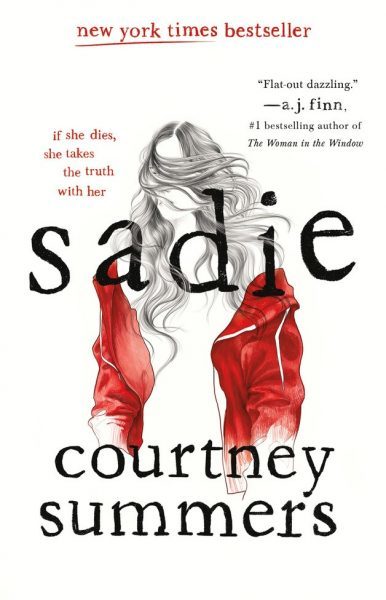 |
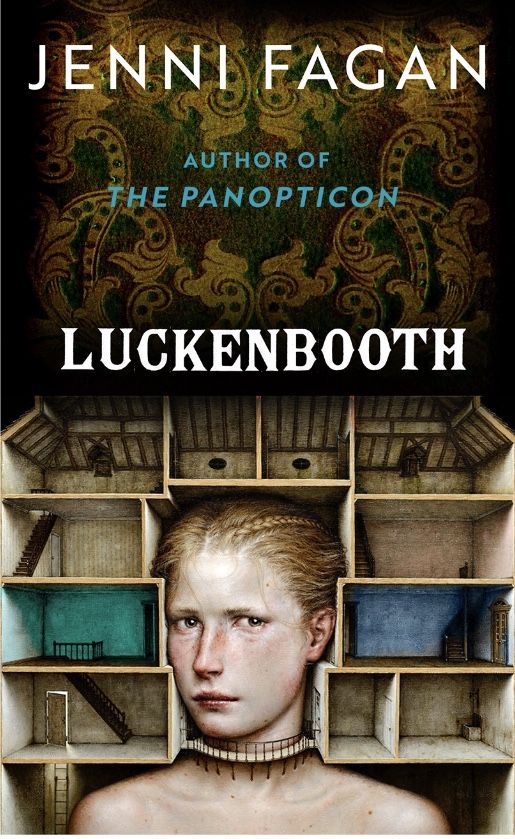 |
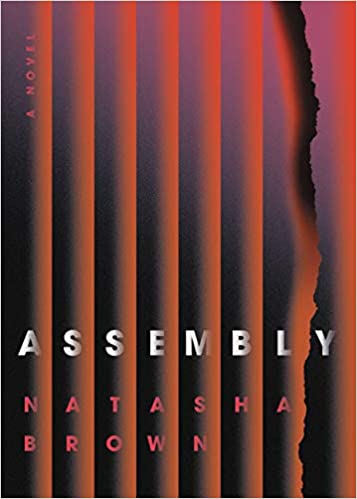 |
- Kazuo Ishiguro, Klara and the Sun (2021) | 10.2021
From her place in the store, Klara, an Artificial Friend with outstanding observational qualities, watches carefully the behavior of those who come in to browse, and of those who pass on the street outside. She remains hopeful that a customer will soon choose her, but when the possibility emerges that her circumstances may change forever, Klara is warned not to invest too much in the promises of humans. - Emily St. John Mandel, Station Eleven (2014) | 11.2021
One snowy night a famous Hollywood actor slumps over and dies onstage during a production of King Lear. Hours later, the world as we know it begins to dissolve. Moving back and forth in time—from the actor's early days as a film star to fifteen years in the future, when a theater troupe known as the Traveling Symphony roams the wasteland of what remains—this suspenseful, elegiac, spellbinding novel charts the strange twists of fate that connect five people: the actor, the man who tried to save him, the actor's first wife, his oldest friend, and a young actress with the Traveling Symphony, caught in the crosshairs of a dangerous self-proclaimed prophet. - Courtney Summers, Sadie (2018) | 12.2021
Sadie hasn't had an easy life. Growing up on her own, she's been raising her sister Mattie in an isolated small town, trying her best to provide a normal life and keep their heads above water.
But when Mattie is found dead, Sadie's entire world crumbles. After a somewhat botched police investigation, Sadie is determined to bring her sister's killer to justice and hits the road following a few meager clues to find him.
When West McCray―a radio personality working on a segment about small, forgotten towns in America―overhears Sadie's story at a local gas station, he becomes obsessed with finding the missing girl. He starts his own podcast as he tracks Sadie's journey, trying to figure out what happened, hoping to find her before it's too late. - Jenni Fagan, Luckenbooth (2021) | 01.2022
The devil's daughter rows to Edinburgh in a coffin, to work as maid for the Minister of Culture, a man who lives a dual life. But the real reason she's there is to bear him and his barren wife a child, the consequences of which curse the tenement building that is their home for a hundred years. As we travel through the nine floors of the building and the next eight decades, the resident's lives entwine over the ages and in unpredictable ways. Along the way we encounter the city's most infamous Madam, a seance, a civil rights lawyer, a bone mermaid, a famous Beat poet, a notorious Edinburgh gang, a spy, the literati, artists, thinkers, strippers, the spirit world - until a cosmic agent finally exposes the true horror of the building's longest kept secret. No. 10 Luckenbooth Close hurtles the reader through personal and global history - eerily reflecting modern life today. - Natasha Brown, Assembly (2021) | 02.2022
Come of age in the credit crunch. Be civil in a hostile environment. Step out into a world of Go Home vans. Go to Oxbridge, get an education, start a career. Do all the right things. Buy a flat. Buy art. Buy a sort of happiness. But above all, keep your head down. Keep quiet. And keep going.
SUMMER 2021
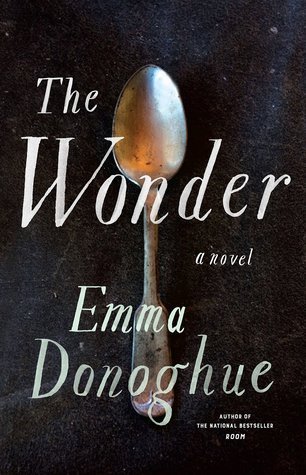 |
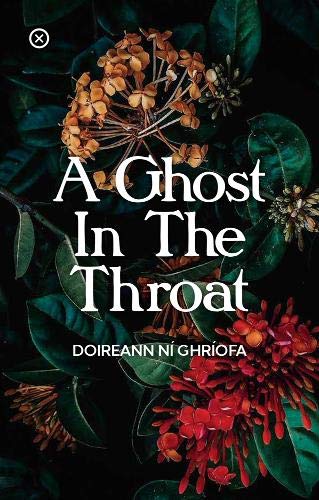 |
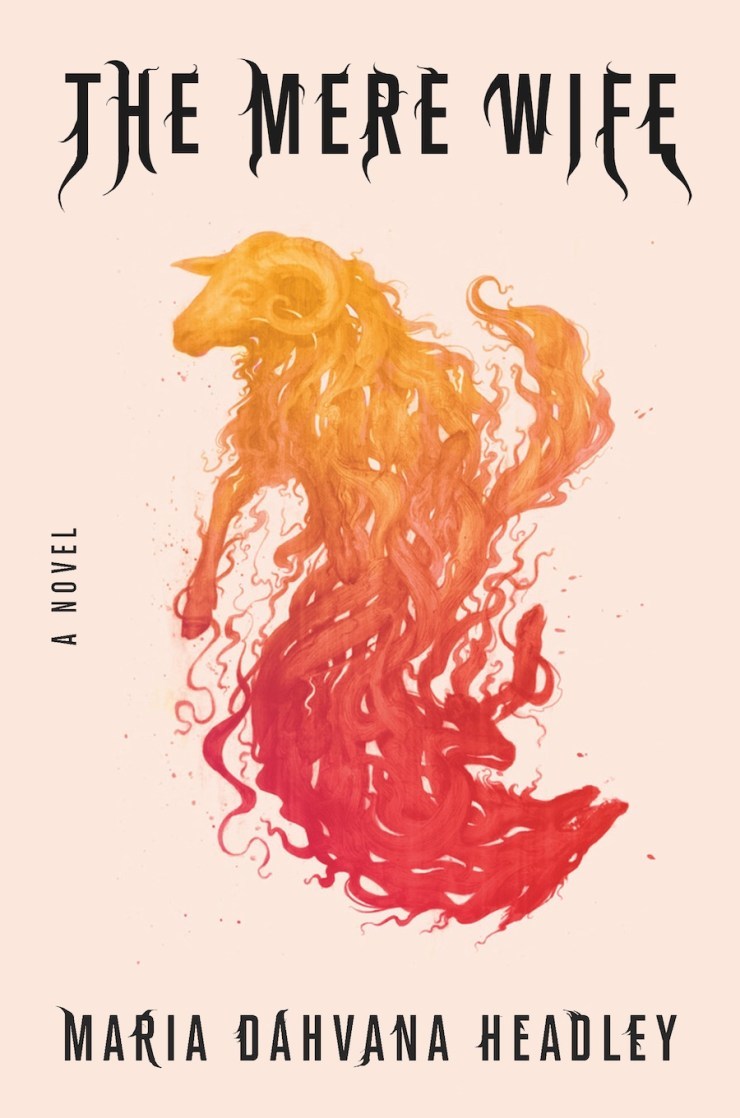 |
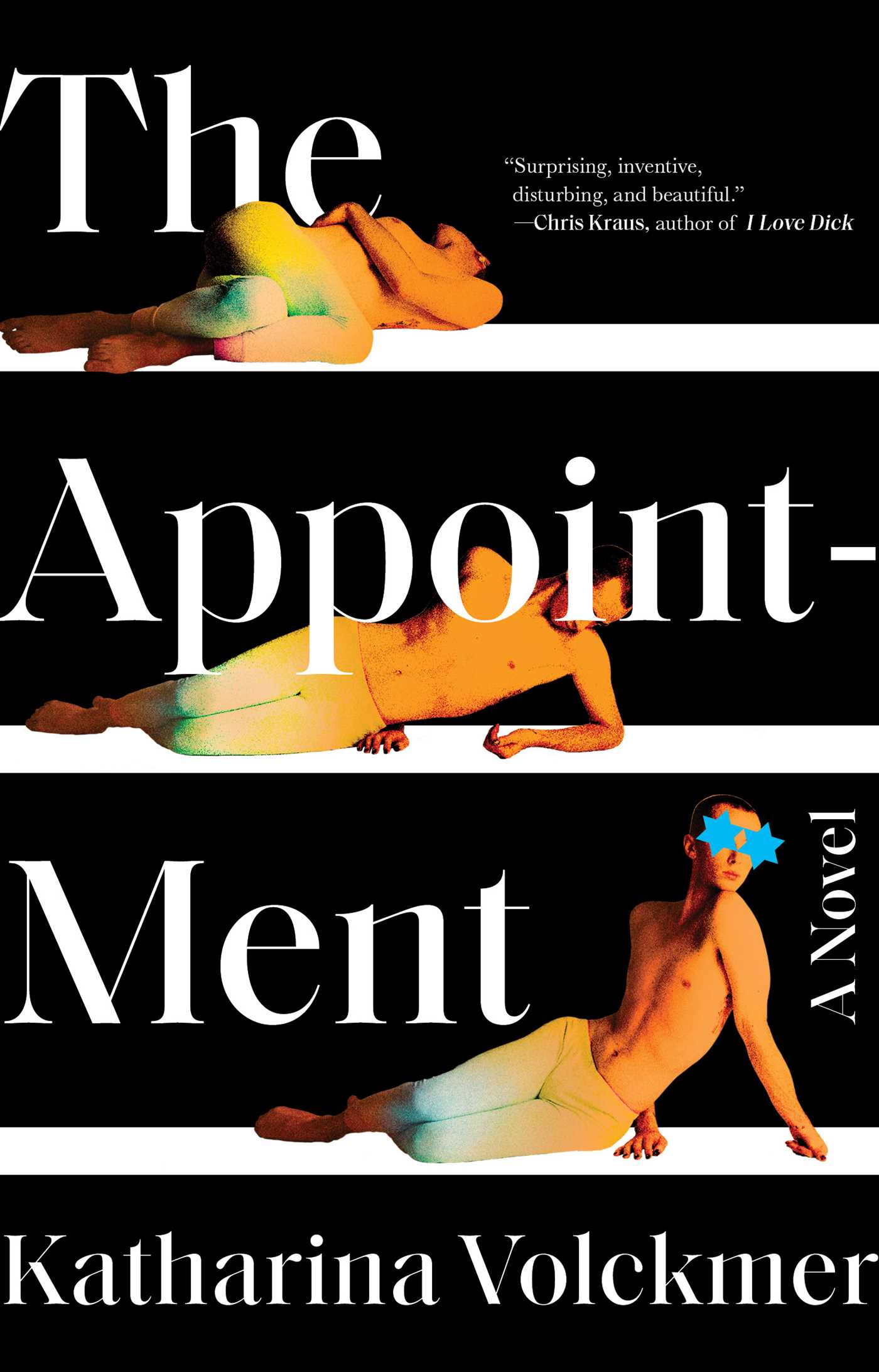 |
- Emma Donaghue, The Wonder (2017) | 4.2021
The Irish Midlands, 1859. An English nurse, Lib Wright, is summoned to a tiny village to observe what some are claiming as a medical anomaly or a miracle - a girl said to have survived without food for months. Tourists have flocked to the cabin of eleven-year-old Anna O'Donnell, and a journalist has come down to cover the sensation. - Doireann Ní Ghríofa, A Ghost in the Throat (2020) | 5.2021
In the 1700s, an Irish noblewoman, on discovering her husband has been murdered, drinks handfuls of his blood and composes an extraordinary poem. In the present day, a young mother narrowly avoids tragedy. On encountering the poem, she becomes obsessed with its parallels with her own life, and sets out to track down the rest of the story. - Maria Dahvana Headley, The Mere Wife (2018) | 6.2021
Two mothers—a suburban housewife and a battle-hardened veteran—struggle to protect those they love in this modern retelling of Beowulf.
From the perspective of those who live in Herot Hall, the suburb is a paradise. Picket fences divide buildings—high and gabled—and the community is entirely self-sustaining. Each house has its own fireplace, each fireplace is fitted with a container of lighter fluid, and outside—in lawns and on playgrounds—wildflowers seed themselves in neat rows. But for those who live surreptitiously along Herot Hall’s periphery, the subdivision is a fortress guarded by an intense network of gates, surveillance cameras, and motion-activated lights.
For Willa, the wife of Roger Herot (heir of Herot Hall), life moves at a charmingly slow pace. She flits between mommy groups, playdates, cocktail hour, and dinner parties, always with her son, Dylan, in tow. Meanwhile, in a cave in the mountains just beyond the limits of Herot Hall lives Gren, short for Grendel, as well as his mother, Dana, a former soldier who gave birth as if by chance. Dana didn’t want Gren, didn’t plan Gren, and doesn’t know how she got Gren, but when she returned from war, there he was. When Gren, unaware of the borders erected to keep him at bay, ventures into Herot Hall and runs off with Dylan, Dana’s and Willa’s worlds collide. - Katharina Volckmer, The Appointment (2020) | 7.2021
In a well-appointed examination in London, a young woman unburdens herself to a certain Dr. Seligman. Though she can barely see above his head, she holds forth about her life and desires, her struggles with her sexuality and identity. Born and raised in Germany, she has been living in London for several years, determined to break free from her family origins and her haunted homeland. But the recent death of her grandfather, and an unexpected inheritance, make it clear that you cannot easily outrun your own shame, whether it be physical, familial, historical, national, or all of the above.
Or can you? With Dr. Seligman’s help, our narrator will find out.
In a monologue that is both deliciously dark and subversively funny, she takes us on a wide-ranging journey from Hitler-centered sexual fantasies and overbearing mothers to the medicinal properties of squirrel tails and the notion that anatomical changes can serve as historical reparation.
WINTER 2020/21
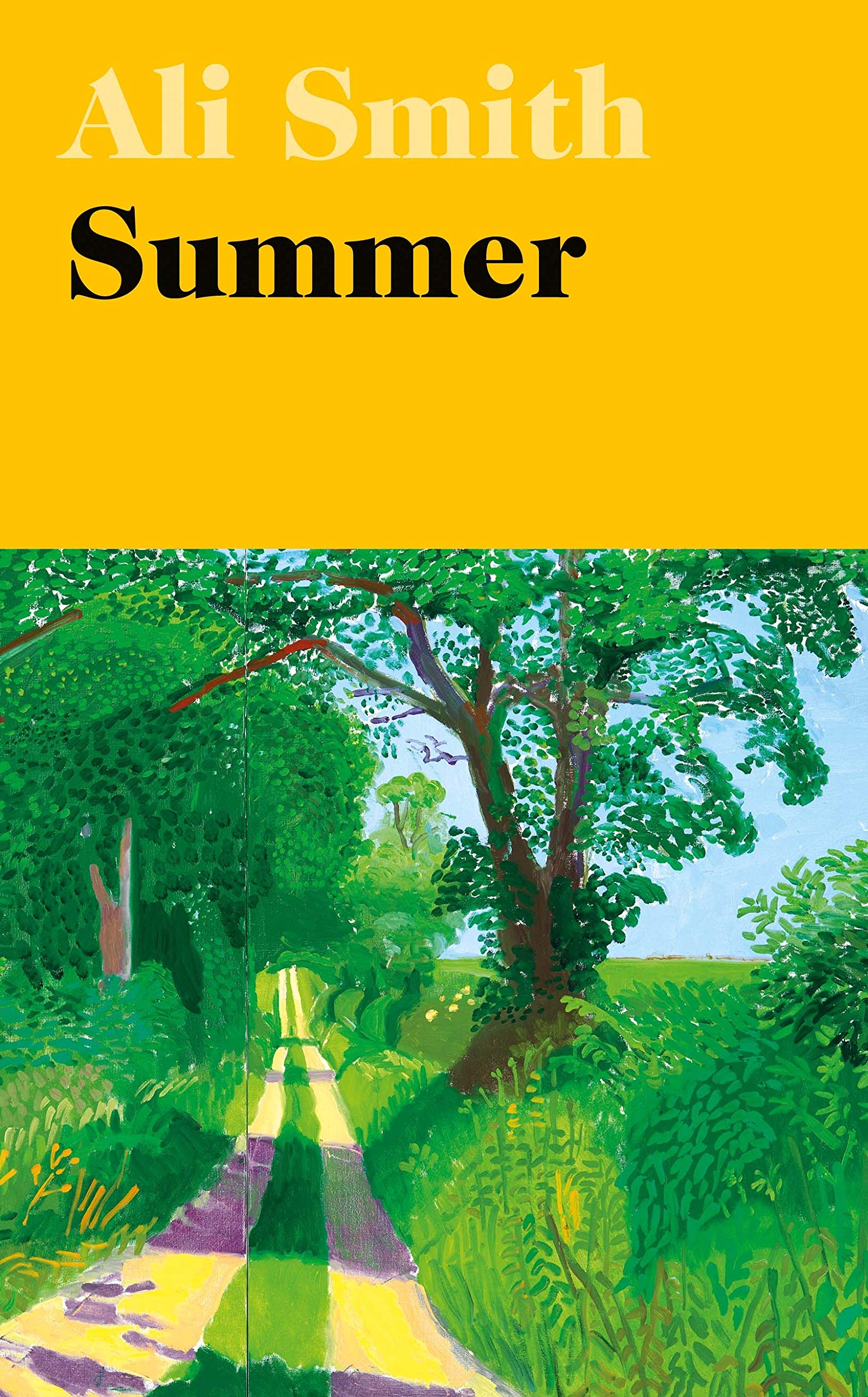 |
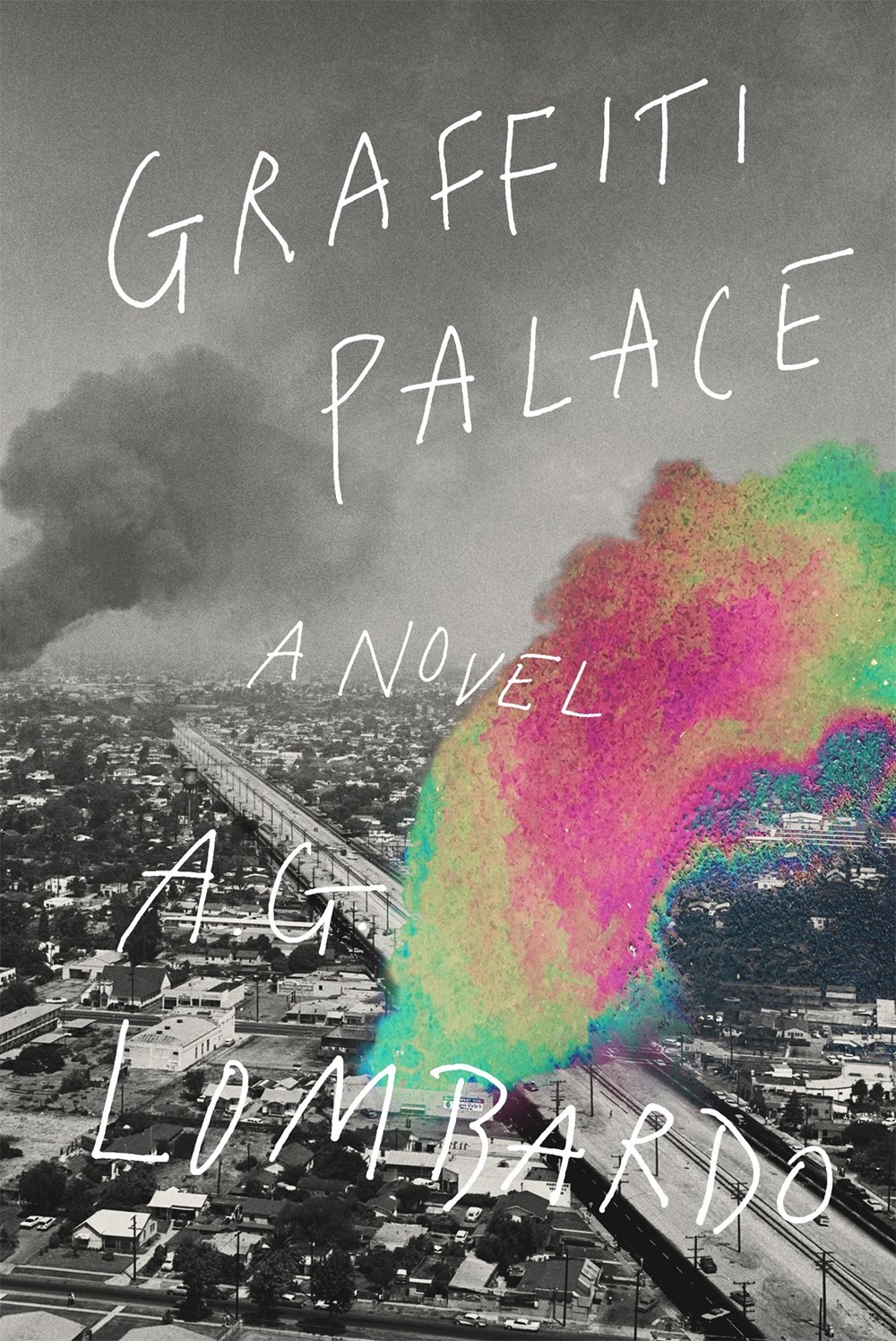 |
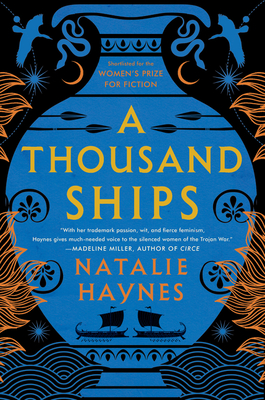 |
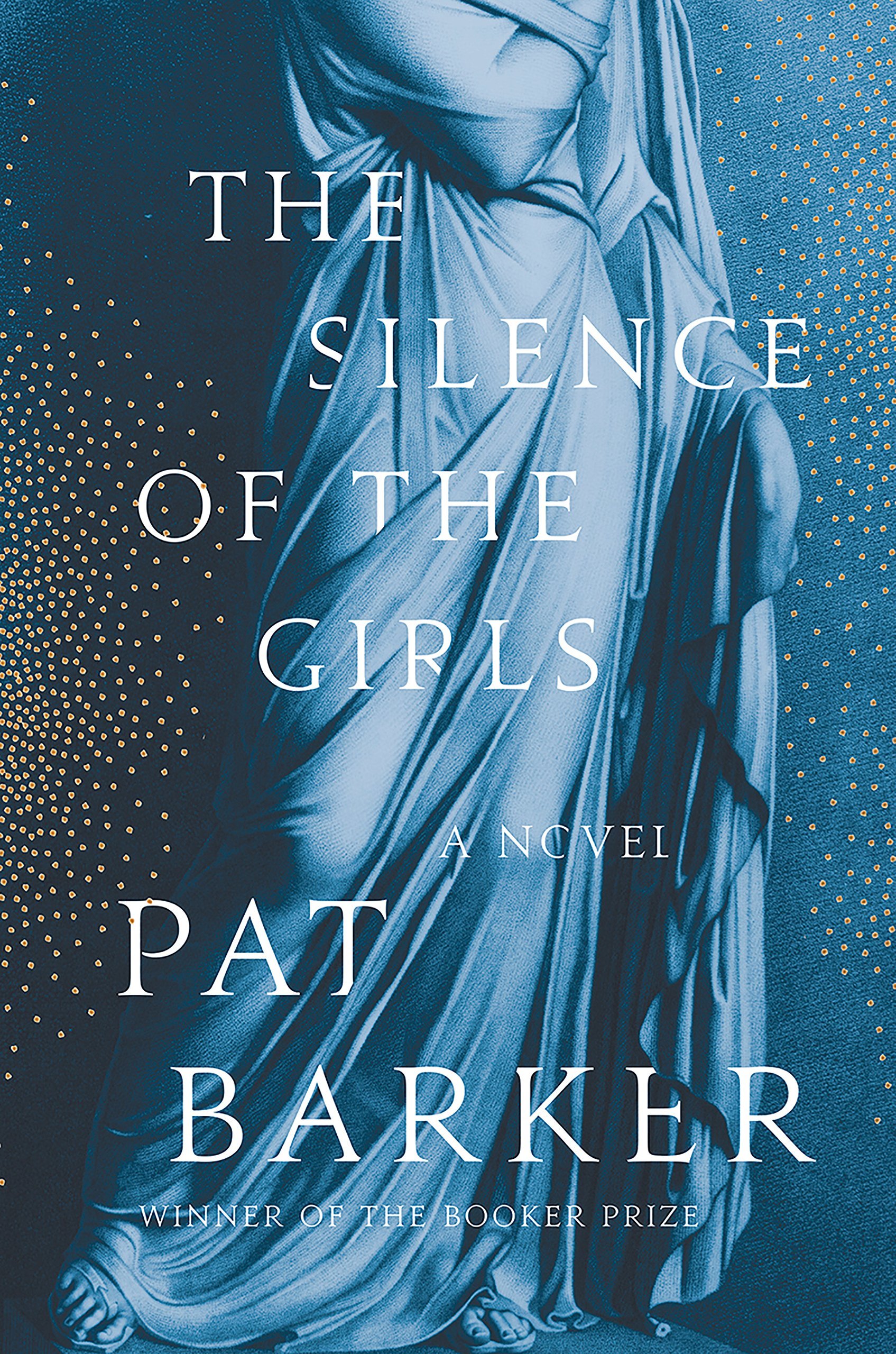 |
- Ali Smith, Summer (2020) | 10.2020
In the present, Sacha knows the world's in trouble. Her brother Robert just is trouble. Their mother and father are having trouble. Meanwhile the world's in meltdown - and the real meltdown hasn't even started yet.
In the past, a lovely summer. A different brother and sister know they're living on borrowed time.
This is a story about people on the brink of change.
They're family, but they think they're strangers.
So: where does family begin? And what do people who think they've got nothing in common have in common? - A.G. Lombardo, Graffiti Palace (2020) | 12.2020
It's August 1965 and Los Angeles is scorching. Americo Monk, a street-haunting aficionado of graffiti, is frantically trying to return home to the makeshift harbor community (assembled from old shipping containers) where he lives with his girlfriend, Karmann. But this is during the Watts Riots, and although his status as a chronicler of all things underground garners him free passage through the territories fiercely controlled by gangs, his trek is nevertheless diverted.
Embarking on an exhilarating, dangerous, and at times paranormal journey, Monk crosses paths with a dizzying array of representatives from Los Angeles subcultures, including Chinese gangsters, graffiti bombers, witches, the Nation of Islam leader Elijah Muhammad, and others. Graffiti Palace is the story of a city transmogrified by the upsurge of its citizens, and Monk is our tour guide, cataloging and preserving the communities that, though surreptitious and unseen, nevertheless formed the backbone of 1960s Los Angeles. - Natalie Haynes, A Thousand Ships (2019) | 01.2021
This is the women’s war, just as much as it is the men’s. They have waited long enough for their turn . . .
This was never the story of one woman, or two. It was the story of them all . . .
In the middle of the night, a woman wakes to find her beloved city engulfed in flames. Ten seemingly endless years of conflict between the Greeks and the Trojans are over. Troy has fallen.
From the Trojan women whose fates now lie in the hands of the Greeks, to the Amazon princess who fought Achilles on their behalf, to Penelope awaiting the return of Odysseus, to the three goddesses whose feud started it all, these are the stories of the women whose lives, loves, and rivalries were forever altered by this long and tragic war. - Pat Baker, The Silence of the Girls (2018) | 02.2021
The ancient city of Troy has withstood a decade under siege of the powerful Greek army, which continues to wage bloody war over a stolen woman—Helen. In the Greek camp, another woman—Briseis—watches and waits for the war's outcome. She was queen of one of Troy's neighboring kingdoms, until Achilles, Greece's greatest warrior, sacked her city and murdered her husband and brothers. Briseis becomes Achilles's concubine, a prize of battle, and must adjust quickly in order to survive a radically different life, as one of the many conquered women who serve the Greek army.
When Agamemnon, the brutal political leader of the Greek forces, demands Briseis for himself, she finds herself caught between the two most powerful of the Greeks. Achilles refuses to fight in protest, and the Greeks begin to lose ground to their Trojan opponents. Keenly observant and coolly unflinching about the daily horrors of war, Briseis finds herself in an unprecedented position, able to observe the two men driving the Greek army in what will become their final confrontation, deciding the fate not only of Briseis's people but also of the ancient world at large.
WINTER 2019/20
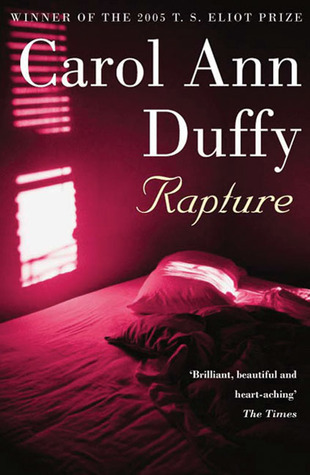 |
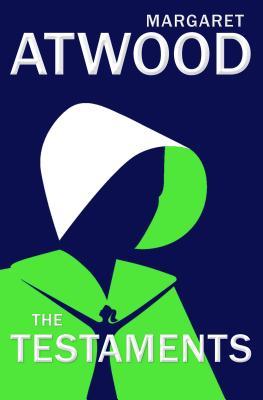 |
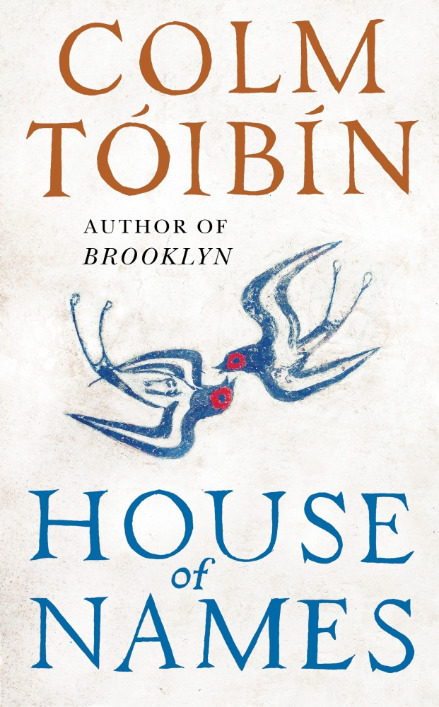 |
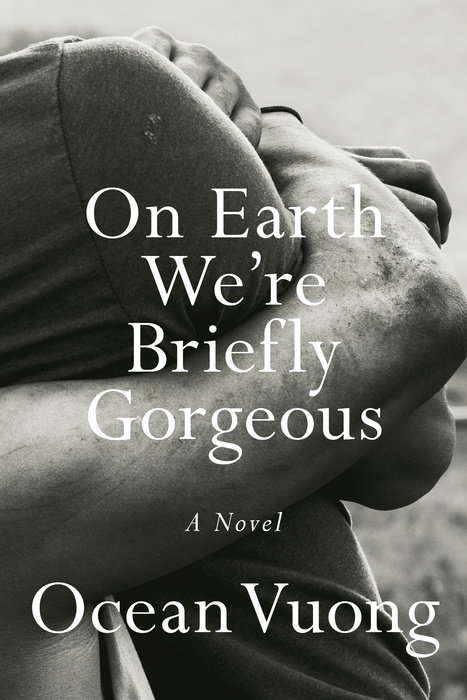 |
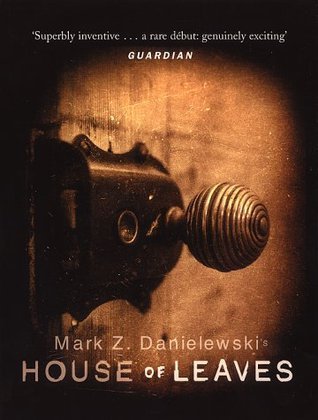 |
 |
- Carol Ann Duffy, Rapture (2005) | 11.2019
Carol Ann Duffy's Rapture is about the loss and rediscovery of love in all its aspects - erotic, intellectual, emotional. - Margaret Atwood, The Testaments (2019) | 11.2019
When the van door slammed on Offred's future at the end of The Handmaid's Tale, readers had no way of telling what lay ahead for her--freedom, prison or death.
With The Testaments, the wait is over.
Margaret Atwood's sequel picks up the story more than fifteen years after Offred stepped into the unknown, with the explosive testaments of three female narrators from Gilead. - Colm Tóibín, House of Names (2016) | 12.2019
On the day of his daughter's wedding, Agamemnon orders her sacrifice. His daughter is led to her death, and Agamemnon leads his army into battle, where he is rewarded with glorious victory.
Three years later, he returns home and his murderous action has set the entire family - mother, brother, sister - on a path of intimate violence, as they enter a world of hushed commands and soundless journeys through the palace's dungeons and bedchambers. As his wife seeks his death, his daughter, Electra, is the silent observer to the family's game of innocence while his son, Orestes, is sent into bewildering, frightening exile where survival is far from certain. Out of their desolating loss, Electra and Orestes must find a way to right these wrongs of the past even if it means committing themselves to a terrible, barbarous act. - Ocean Vuong, On Earth We’re Briefly Gorgeous (2019) | 12.2019
On Earth We're Briefly Gorgeous is a letter from a son to a mother who cannot read. Written when the speaker, Little Dog, is in his late twenties, the letter unearths a family's history that began before he was born — a history whose epicenter is rooted in Vietnam — and serves as a doorway into parts of his life his mother has never known, all of it leading to an unforgettable revelation. At once a witness to the fraught yet undeniable love between a single mother and her son, it is also a brutally honest exploration of race, class, and masculinity. Asking questions central to our American moment, immersed as we are in addiction, violence, and trauma, but undergirded by compassion and tenderness, On Earth We're Briefly Gorgeous is as much about the power of telling one's own story as it is about the obliterating silence of not being heard. - Mark Z. Danielewski, House of Leaves (2000) | 01.2020
A young family moves into a small home on Ash Tree Lane where they discover something is terribly wrong: their house is bigger on the inside than it is on the outside. - Martin McDonagh, The Pillowman (2003) | 02.2020
A writer in a totalitarian state is interrogated about the gruesome content of his short stories and their similarities to a number of child-murders that are happening in his town.
SUMMER 2019
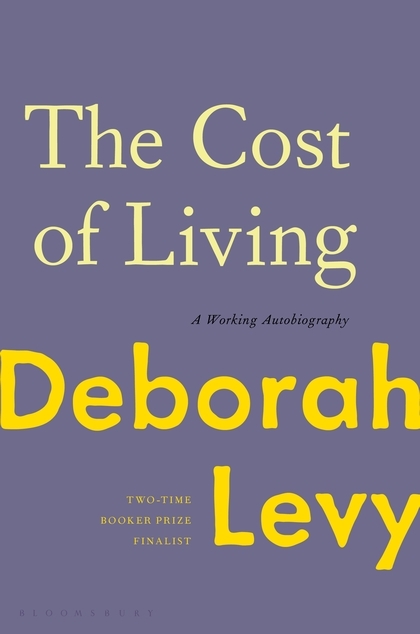 |
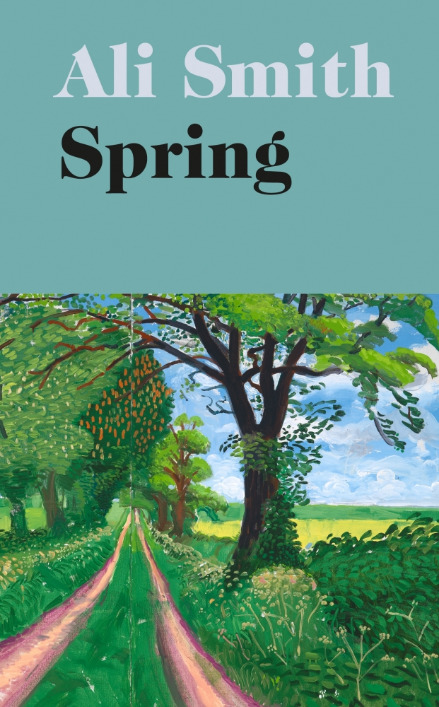 |
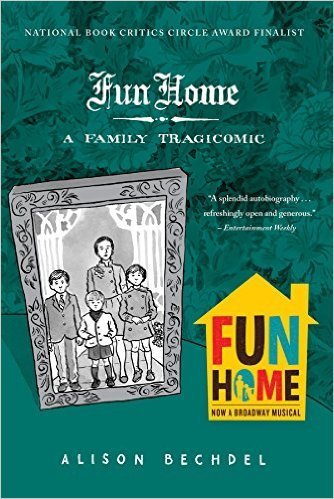 |
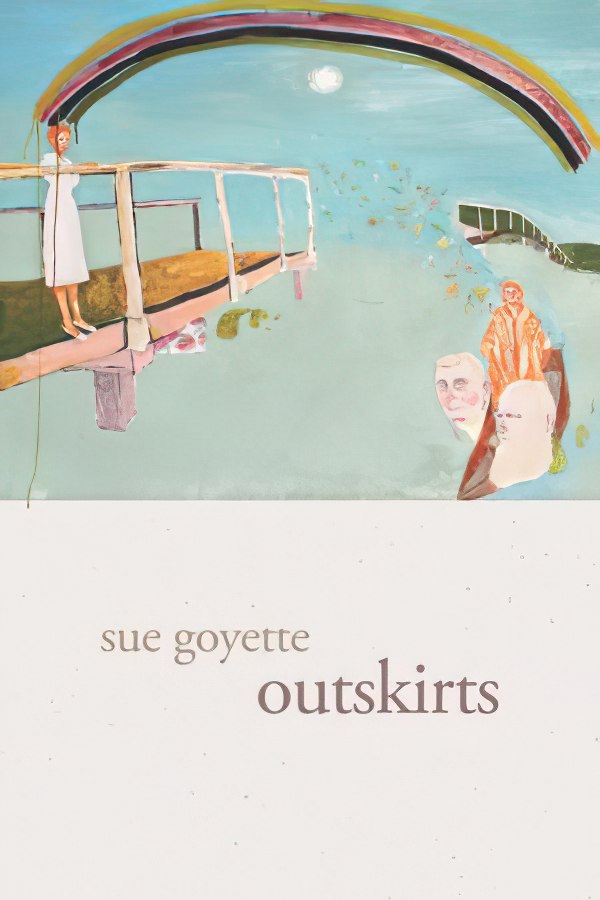 |
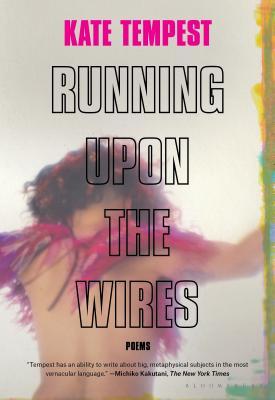 |
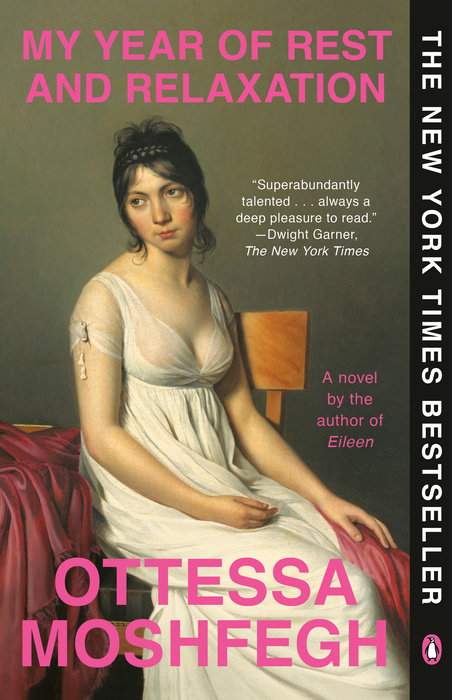 |
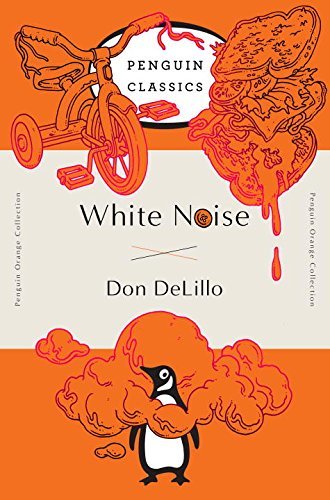 |
- Deborah Levy, The Cost of Living (2018) | 05.2019
To strip the wallpaper off the fairy tale of The Family House in which the comfort and happiness of men and children has been the priority is to find behind it an unthanked, unloved, neglected, exhausted woman. - Ali Smith, Spring (2019) | 05.2019
Spring will come. The leaves on its trees will open after blossom. Before it arrives, a hundred years of empire-making. The dawn breaks cold and still but, deep in the earth, things are growing. - Alison Bechdel, Fun Home (2006) | 06.2019
In this graphic memoir, Alison Bechdel charts her fraught relationship with her late father.
Distant and exacting, Bruce Bechdel was an English teacher and director of the town funeral home, which Alison and her family referred to as the Fun Home. It was not until college that Alison, who had recently come out as a lesbian, discovered that her father was also gay. A few weeks after this revelation, he was dead, leaving a legacy of mystery for his daughter to resolve. - Susan Goyette, Outskirts (2011) | 06.2019
A powerful diptych juxtaposing our rootedness in family love with a report from the precipice of planetary disintegration. - Kate Tempest, Running Upon the Wires (2018) | 06.2019
Award-winning writer, spoken-word star, and spellbinding performer Kate Tempest is as bold an observer of the human heart as she is of social and political change. Her raw and exhilarating new collection of poems throbs with love’s extremes: the end of one relationship, the budding of another, and what happens when the heart is pulled both ways at once. - Ottessa Moshfegh, My Year of Rest and Relaxation (2018) | 07.2019
Our narrator should be happy, shouldn’t she? She’s young, thin, pretty, a recent Columbia graduate, works an easy job at a hip art gallery, lives in an apartment on the Upper East Side of Manhattan paid for, like the rest of her needs, by her inheritance. But there is a dark and vacuous hole in her heart, and it isn’t just the loss of her parents, or the way her Wall Street boyfriend treats her, or her sadomasochistic relationship with her best friend, Reva. It’s the year 2000 in a city aglitter with wealth and possibility; what could be so terribly wrong? - Dan DeLillo, White Noise (1985) | 07.2019
White Noise tells the story of Jack Gladney, his fourth wife, Babette, and four ultramodern offspring as they navigate the rocky passages of family life to the background babble of brand-name consumerism. When an industrial accident unleashes an "airborne toxic event," a lethal black chemical cloud floats over their lives. The menacing cloud is a more urgent and visible version of the "white noise" engulfing the Gladneys—radio transmissions, sirens, microwaves, ultrasonic appliances, and TV murmurings—pulsing with life, yet suggesting something ominous.
WINTER 2018/19
 |
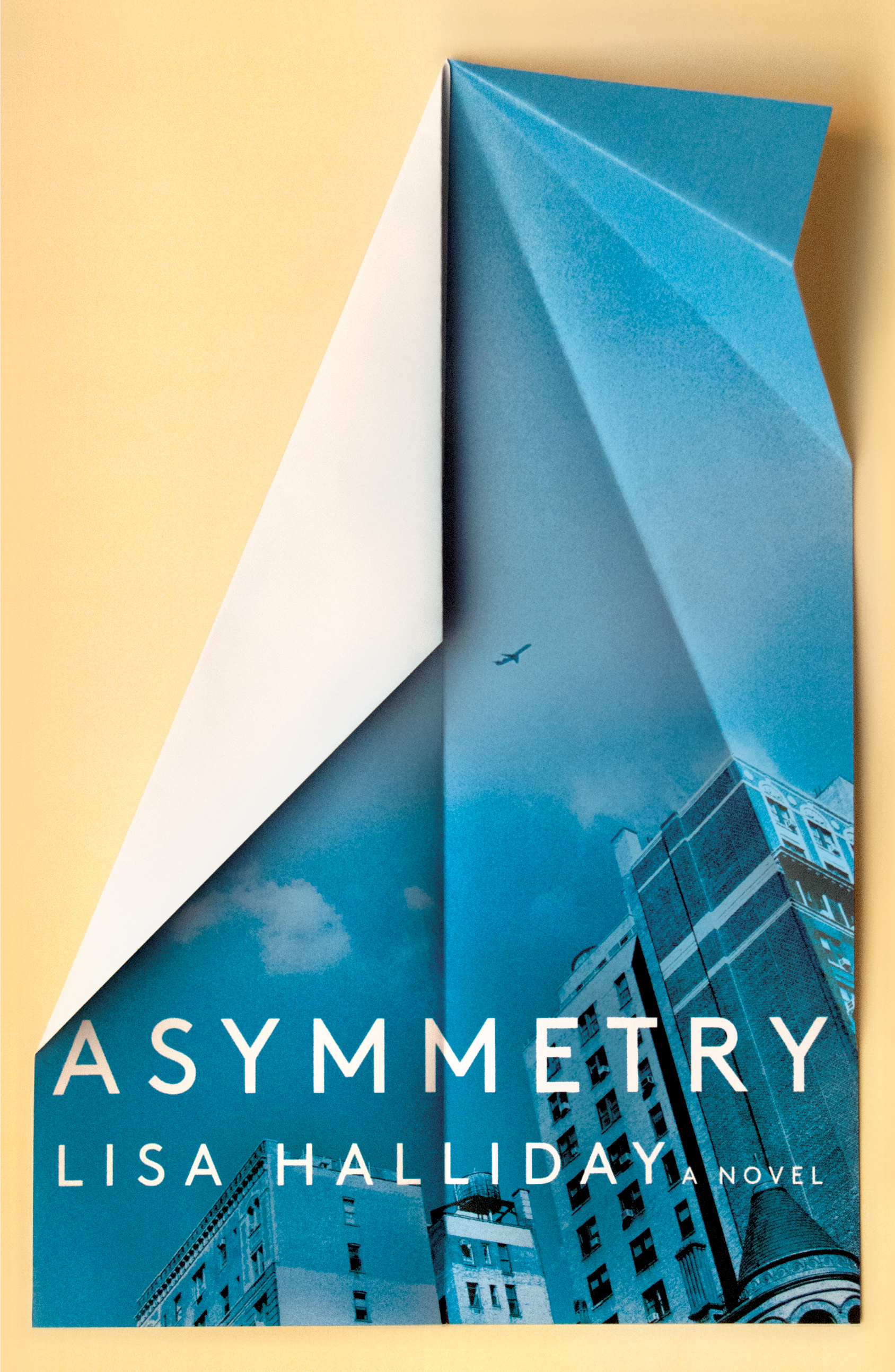 |
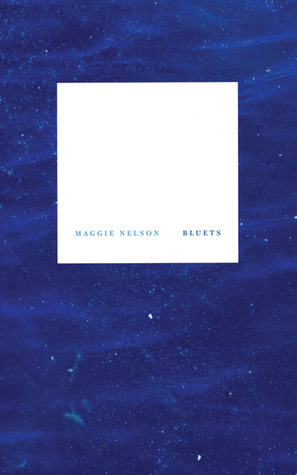 |
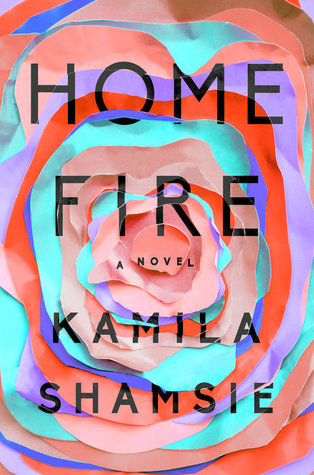 |
- Han Kang, The White Book (2018) | 10.2018
While on a writer's residency, a nameless narrator wanders the twin white worlds of the blank page and snowy Warsaw. THE WHITE BOOK becomes a meditation on the color white, as well as a fictional journey inspired by an older sister who died in her mother's arms, a few hours old. The narrator grapples with the tragedy that has haunted her family, an event she colors in stark white--breast milk, swaddling bands, the baby's rice cake-colored skin--and, from here, visits all that glows in her memory: from a white dog to sugar cubes.
As the writer reckons with the enormity of her sister's death, Han Kang's trademark frank and chilling prose is softened by retrospection, introspection, and a deep sense of resilience and love. THE WHITE BOOK--ultimately a letter from Kang to her sister--offers powerful philosophy and personal psychology on the tenacity and fragility of the human spirit, and our attempts to graft new life from the ashes of destruction. - Lisa Halliday, Asymmetry (2018) | 12.2019
Told in three distinct and uniquely compelling sections, Asymmetry explores the imbalances that spark and sustain many of our most dramatic human relations: inequities in age, power, talent, wealth, fame, geography, and justice. The first section, Folly tells the story of Alice, a young American editor, and her relationship with the famous and much older writer Ezra Blazer. A tender and exquisite account of an unexpected romance that takes place in New York during the early years of the Iraq War, Folly also suggests an aspiring novelist’s coming-of-age. By contrast, Madness is narrated by Amar, an Iraqi-American man who, on his way to visit his brother in Kurdistan, is detained by immigration officers and spends the last weekend of 2008 in a holding room in Heathrow. These two seemingly disparate stories gain resonance as their perspectives interact and overlap, with yet new implications for their relationship revealed in an unexpected coda. - Maggie Nelson, Bluets (2017) | 01.2019
A lyrical, philosophical, and often explicit exploration of personal suffering and the limitations of vision and love, as refracted through the color blue. - Kamila Shamsie, Home Fire (2018) | 01.2019
Isma is free. After years of watching out for her younger siblings in the wake of their mother’s death, she’s accepted an invitation from a mentor in America that allows her to resume a dream long deferred. But she can’t stop worrying about Aneeka, her beautiful, headstrong sister back in London, or their brother, Parvaiz, who’s disappeared in pursuit of his own dream, to prove himself to the dark legacy of the jihadist father he never knew. When he resurfaces half a globe away, Isma’s worst fears are confirmed.
Then Eamonn enters the sisters’ lives. Son of a powerful political figure, he has his own birthright to live up to—or defy. Is he to be a chance at love? The means of Parvaiz’s salvation? Suddenly, two families’ fates are inextricably, devastatingly entwined, in this searing novel that asks: What sacrifices will we make in the name of love?
SUMMER 2018
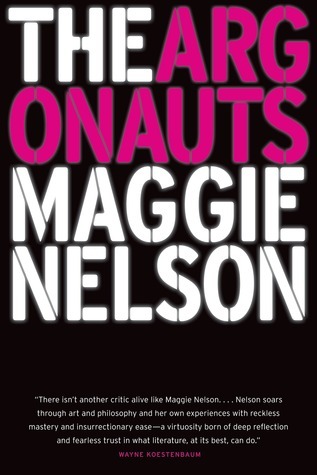 |
 |
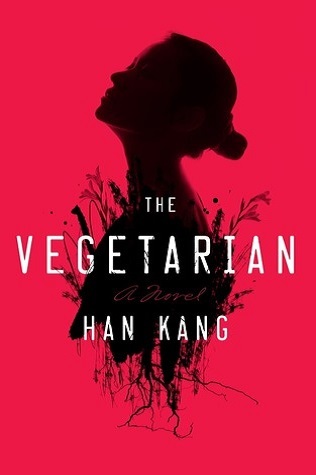 |
- Maggie Nelson, The Argonauts (2016) | 04.2018
An intrepid voyage out to the frontiers of the latest thinking about love, language, and family. - Theo van Leeuwen, Introducing Social Semiotics (2004) | 05.2018
Introducing Social Semiotics uses a wide variety of texts including photographs, adverts, magazine pages and film stills to explain how meaning is created through complex semiotic interactions. Practical exercises and examples as wide ranging as furniture arrangements in public places and advertising jingles, provide readers with the knowledge and skills they need to be able to analyze and also produce successful multimodal texts and designs.
The book traces the development of semiotic resources through particular channels such as the history of the Press and advertising; and explores how and why these resources change over time, for reasons such as advancing technology.
Featuring a full glossary of terms, exercises, discussion points and suggestions for further reading, Introducing Social Semiotics makes concrete the complexities of meaning making and is essential reading for anyone interested in how communication works. - Postcritique?
James F. English, “Everywhere and Nowhere: The Sociology of Literature after the ‘Sociology’ of Literature.” New Literary History 41.2 (2010): v-xxiii.
Sharon Marcus, Heather Love, and Stephen Best, “Building a Better Description.” Representations 135 (2016): 1-21. - Magical realism and speculative fiction | 06.2018
William Spindler, “Magical Realism. A Typology.” Forum for Modern Language Studies 29.1 (1993): 75-85.
Stephen Slemon, “Magical Realism as Postcolonial Discourse.” Canadian Literature 116 (1988): 9-24.
Keith Oakley, “Why Fiction May Be Twice as True as Fact.” Online: http://www.newenglishreview.org/Keith_Oatley/Why_Fiction_May_Be_Twice_as_True_as_Fact/ - Drama and performance | 06.2018







